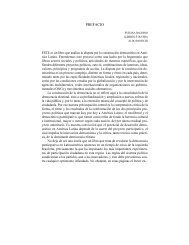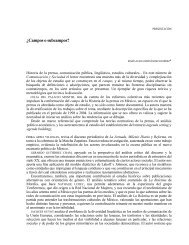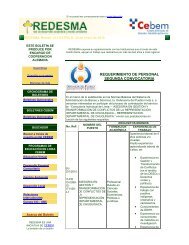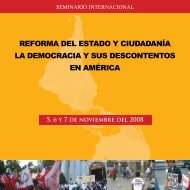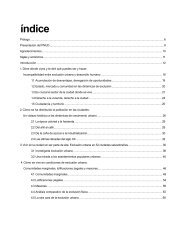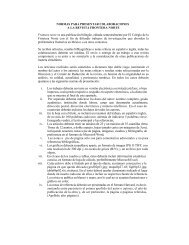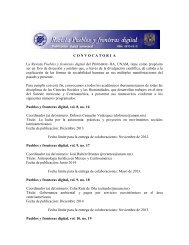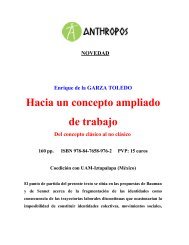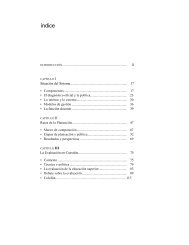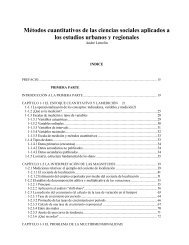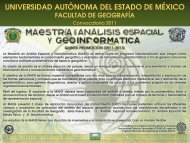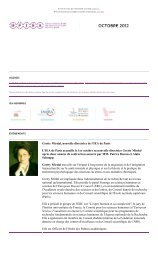RC21 Call for Papers XVII ISA World Congress of Sociology ...
RC21 Call for Papers XVII ISA World Congress of Sociology ...
RC21 Call for Papers XVII ISA World Congress of Sociology ...
- No tags were found...
Create successful ePaper yourself
Turn your PDF publications into a flip-book with our unique Google optimized e-Paper software.
combat exclusion in deprived multi-ethnic, lower-class areas. Although social capitaltheory and elective belonging provide potentially useful ways to think about howresidential space is socially constituted, they also beg important questions regardinghow social mixing occurs in contemporary neighbourhoods that are subject to globalflows <strong>of</strong> people and economic capital. Residential neighourhoods can also be vitalmarkers in Bourdieuvian games <strong>of</strong> social distinction, recognition and power that markout contemporary urban and suburban landscapes. Propinquity does not ipso facto leadto communal bonds as the ongoing debate over gentrification and social mixingdemonstrates; many middle-class gentrifiers are concerned not to mix with the ethnicand working-class ‘others’ that surround them. Also, as Western societies becomeincreasingly suburban, there is a pr<strong>of</strong>ound gap in thinking about and researchingsuburban neighbourhoods. Ethnic diversity, <strong>for</strong> example, is no longer simply an urbancondition since many suburban neighbourhoods are marked by increased socialcomplexity. Although we know something about suburbanites living in gatedcommunities, the latter remain atypical, physically spectacular places. Hence the needto engage with the more prosaic but typical non-gated suburban neighbourhoodexperience. There<strong>for</strong>e this session is interested in receiving theoretical and empiricalpapers on contemporary urban and suburban neighbourhoods with the followingthemes:• Theorising neighbourhoods• Social mixing and social avoidance in neighbourhoods• Mobility and stasis in neighbourhoods• Community <strong>for</strong>mation in the neighbourhood• Social capital <strong>for</strong>mation in the neighbourhood• Class, ethnic and gender relations in neighbourhoods• Neighbourhood as an emancipation vehicle <strong>for</strong> lower social classes• Gated and non-gated neighbourhoods13. Who Belongs Here? The Janus Face <strong>of</strong> BelongingJan Willem Duyvendak (University <strong>of</strong> Amsterdam, THE NETHERLANDS)W.G.J.Duyvendak@uva.nlRecent years have witnessed a resurgent interest in the study <strong>of</strong> home and placeacross the social sciences. In the context <strong>of</strong> globalization, ‘belonging’ and ‘feeling athome’ have become central topics in many political and public debates. On the basis <strong>of</strong>these debates, we can only draw one conclusion: in a mobile world, the question ‘whobelongs where?’ is increasingly disputed. This is the most visibly present in debates onchanging neighbourhoods: due to the influx <strong>of</strong> ‘others’, native-born inhabitants claim tohave lost their ‘home’. At the same time, many observers seem to agree upon theincreasing importance <strong>of</strong> the local as a safe haven in an otherwise uninhabitable world.However, how realistic is the hope that ‘home’ can indeed provide a sense <strong>of</strong>belonging? This workshop welcomes papers dealing with the multi-scalar phenomena <strong>of</strong>‘belonging’ and ‘home feelings’ (or the lack <strong>of</strong> these feelings).7



